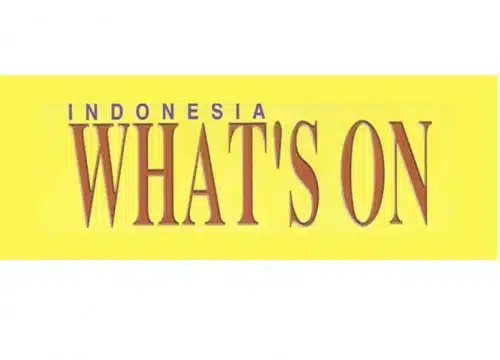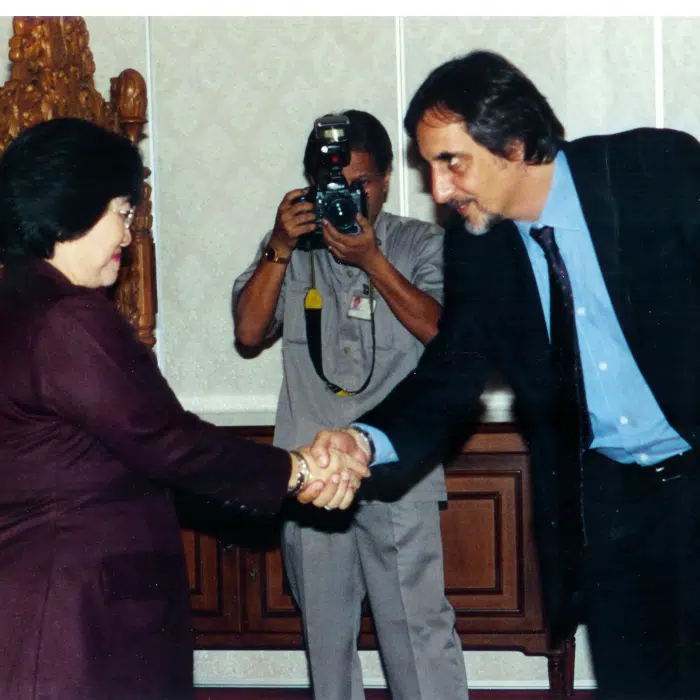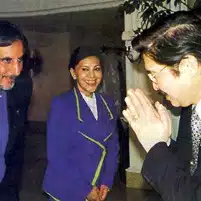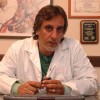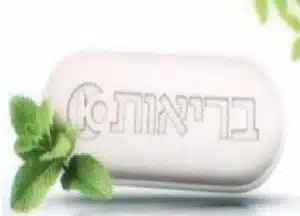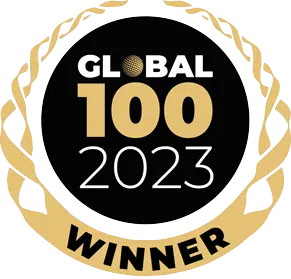Article from What's On Indonesia
There are two things in the modern world that know no geographical boundaries, namely trade and drug addiction. While official trade is closely linked to politics adopted by a government, drug addiction is in some ways also loosely linked to politics. Thus it is worry-some that drug addiction has now become an international issue to tackle. At most, governments can only impose harsh sentence on drug dealers, the likes of Singapore, Malaysia and Thailand treating even small amounts as a capital offence, but that’s barely enough to minimize the social and health impacts of narcotic consumption.
Despite the seriously threatening spread of drug addiction, very few medical doctors are specialised in its treatment. The paucity of drug addiction specialists in the medical world is acutely felt in all corners of the world. As drug addiction rages on in Indonesia, despite the fact that it takes much money to support the habit during the economic crisis, more and more youngsters are getting caught up in the web of drug addiction. Alternative ways to modern medical treatments have been mushrooming nationwide, ranging from religious rituals to social sanctions. The problem continues though, from the medical viewpoint, mainly due to the absence of reliable, effective treatment.
This hopelessness is allayed somewhat with the arrival of the Israeli doctor Andre Waismann, who has showed his keen intention to render a remarkable contribution to drug addiction treatment. Worldwide, the physician has already successfully treated over 8,000 patients, ranging in age from six to 72 years old. Evident of his serious endeavour is this his third visit to Indonesia. On the heels of his meaningful previous visits, this third visit provided yet another milestone in his Indonesian experience. He was welcomed by First Lady Nuriah Abdurrahman Wahid at the State Palace, who expressed her support for Waissman’s goodwill. Her warm welcome signifies the importance of drug addiction treatment amidst the prolonged economic crisis. In such hard times, the sophisticated medical treatment of drug addiction is beyond the budget of nearly all addicts’ families.
Drug addiction, which has reached two million in the country, realy places a social stigma both on the addict himself and the family, even more so when the addict comes from the family of high-ranking military or civilian officials. At the moment, a susrect in a narcotics-related case is the son of a retired army general, and the case has become indicative of the ballooning problem of drug addiction in lndonesia and provides a test for the integrity of the judiciary. Unfortunately drug addiction permeates to all walks of social-economic life, from the very poor and unemployed to very wealthy families with very good social-economic standing.
Mired in a blurred picture of younger generations, Indonesia is thus in deep need of drug addiction treatment specialists like Dr Andre Waissman. But very few in the world can meet his calibre of expertise. Well aware of this background, Dr. Waismann has taken the initiative to disseminate his knowledge, skill and expertise through education and training activities. A transfer of technology is now underway.
Combining the application of the latest medical technology, innovative methods and professional experience, Dr. Waissman has built an international reputation in this specific field. Despite diplomatic and political constraints in terms of Indonesian-Israeli affairs, Dr. Waismann has managed to Indonesianise his humanitarian mission as well as gaining a love for Indonesia. As far as to love means to overcome challenges, he has been overcoming the challenges for the sake of making a visit and running his humanitarian mission in Indonesia.
Dr. Waismann is encouraged by the way he has been welcomed by such a positive response from Indonesian friends, including fellow doctors, as well as acquaintances. Further encouragement is the plan of President Abdurrahman Wahid to visit Israel despite the absence of diplomatic and economic ties. Dr. Waismann intends to become more deeply involved in the national campaign for eradicating drug addiction, locally termed “narkoba”, which stands for narcotics and drugs. He has offered the Dean of the Medical Faculty of Universitas Indonesia a training and certification programme for senior students. He simply wants to share his knowledge on ‘hows’, ‘whys’ and ‘wherefores’ in drug addiction treatment in a sophisticated manner.
Behind his offer is a long track record of successful treatment worldwide, including many Indonesian patients. His proven effective treatment will help Indonesians save money and time from having to go abroad for the same objective. Expensive costs on transportation, accommodation and hospitals can but pared to the minimum. In fact, his new method uses the same ingredients as those available 30 years ago, but the ingredients have undergone intensive research and development to show remarkable improvement in maximising effectiveness and minimising negative impacts.
To put the method in simple terms, Dr. Waismann blocks the opium receptors within the central nervous system from dependency with the assistance of anesthetic treatment. His innovation enables cleaning of drug dependency in as short as 4.5 hours of medical treatment. The concepts of this method have been welcomed also by the Governor of Jakarta, Sutiyoso, who is embarking on an anti-narcotics and drug abuse drive. With a population of more then 10 million people, Jakarta faces a chronic situation in terms of drug abuse, while it serves as the centre of governmental administration of the country. An idea to prevent Jakarta from being a major centre for of drug abuse may still be a dream for the people and a nightmare for drug dealers, but something real has to be introduced. In this respect, Dr. Waismann is willing to contribute with his knowledge and expertise.
This Indonesian encounter includes the completion of training for the first batch of Indonesian anesthetics so that they cam treat patients in their own country. In his Megama clinic in Israel, Dr. Waissmann has treated 100 Indonesians. In Jakarta, Dr. Waissmann has inspired the establishment of the Asa Bangsa Foundation. After experiencing eight months of treatments using Dr. Waissmann’s methods, anaesthetist doctors Linda and Sun Sunatrio have given their response regarding the method. According to them the main obstacles of the treatment depends on the patient’s discipline to cure the addiction. Basically the patient will be cured within one day, however they must complete the course of treatment by taking Naltrexone medicine every day to eradicate the craving for the narcotics. The anaesthetists added that the patients could not forget their Naltrexone medicine for more than one or two days, as the implications of delaying the routine treatments could create more opium receptors.
When drug abuse in Jakarta has been markedly reduced, it will be easier for other regions to carry out the same mission, because Jakarta is the centre of creative people even in terms of such crimes as drug abuse. They continually invent new ways to conceal hashish and the like, to covertly sell it and transport it, as well as new ways to produce synthetic drugs. Once a field method is detected by the police, another method is introduced. Consequently, victims of drug abuse keep rising and there are few places where they can go for effective treatment. If stopping drug abuse is almost an impossible dream, then to stop drug dependence by a victim is now possible thanks to Dr. Waismann’s pioneering method.

